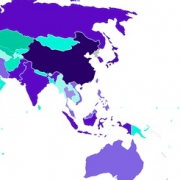Tanzania tracks malaria prevention with mobile phones
In Tanzania, a new voucher program started in late July that provides discounted insecticide treated bed nets for pregnant women and children. This program also takes advantage of mobile technology as retailers can inform local clinics when their shops are getting low on life saving supplies by text messaging.
The program which is being overseen by MEDA, a Canadian organization, integrates health clinics, wholesalers, retailers and bed net manufacturers. Pregnant women and families with children in rural areas are eligible to receive a voucher from health clinics to get discounted insecticide treated bed nets from health supply retailers at 500 Tanzania shillings (about $0.35).
Once a woman takes a voucher to a retailer and pays a discounted price, she receives a bed net in return. The retailer then uses his or her cell to send a text message back to MEDA, which helps run the program. That SMS provides crucial monitoring data that includes the number of bed nets provided to the community and how many are needed in their next shipment.
The use of mobile technology to monitor bed net stocks and shipments is the feature that set this bed net initiative apart from others.
Each shipment contains a predetermined number of bed nets for a specific region based on their unique needs. Once the bed nets are delivered and the vouchers are collected, the retailers receive monetary compensation.
In the “fight” against malaria, insecticide treated bed nets are a cost effective and proven weapon, especially for families in rural communities. According to the Global Fund, more than 300 million bed nets have been distributed in Sub-Saharan Africa since 2008. Moreover, Tanzania is a hard hit country as 2 million out of the 44 million people are affected by malaria.
Distributing vouchers for discounted bed nets is not a new method of tackling malaria. However, this approach produces a different sentiment amongst bed net owners than simply passing out bed nets to families for free.
Health workers have found that when a family makes a small investment in the net, it becomes a more valued commodity. Initiatives that pass out bed nets for free sometimes fail because families adopt the mentality that bed nets are valueless and easily replaceable.
This program distributes paper vouchers to the women that visit health clinics. Paper vouchers can easily be lost or ruined altogether. Therefore, keeping track of paper vouchers is often an obstacle. The next step is eliminating paper vouchers and developing text message based vouchers to make the process more efficient.







































